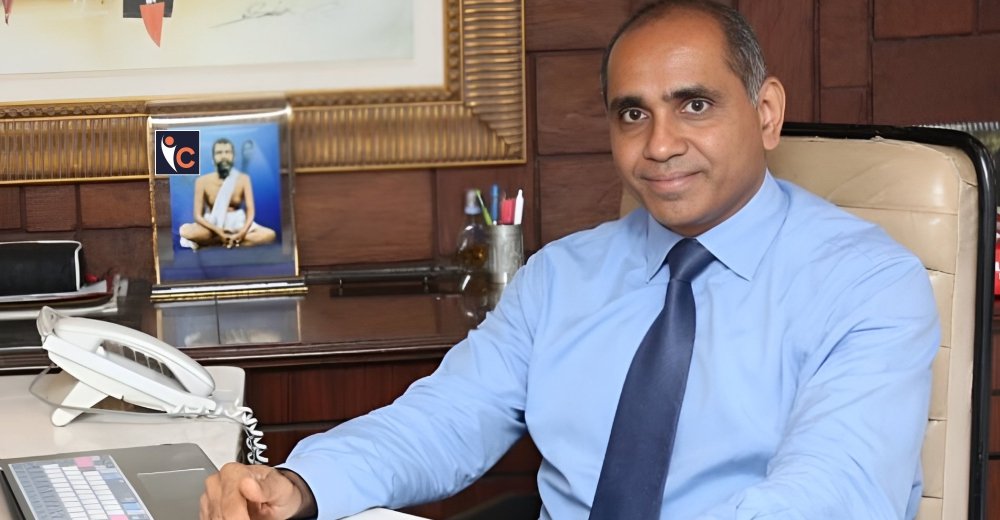Innovative Leadership
The Indian healthcare industry stands at a turning point. The burgeoning population, augmented demand for quality care, and limited resources have made it imperative to realign the pattern of delivery of healthcare services. Digital revolution has been the greatest answer in today’s era, and innovative leadership is the backbone of the revolution. Innovative leaders who are receptive to innovation, technology, and collaboration are revolutionizing the functioning of hospitals, clinics, and health systems as well, with direct results of enhanced access, efficiency, and outcomes.
Healthcare innovative leadership is less about the capacity to introduce new technology and more about the capacity to build a culture of experimentation and change. These leaders are aware that digital transformation in healthcare isn’t so much about installing applications or programs but about viewing differently processes, workflows, and patient experience. They care about solutions that help address real problems in the health system, from record keeping and registration of patients through diagnostics and telemedicine.
One of the fields where digital transformation is making a huge impact is that of patient care. In Indian hospitals, EHRs are being implemented to get rid of the traditional paper-based systems. The nurses and doctors can access patients’ histories instantly and thus avoid errors and improve decision-making. Leaders of such projects ensure that the staff is trained adequately to operate the systems to their optimal capacity and patients’ information is well secured. As the digitally literate culture of an environment evolves, these leaders bring about a healthcare environment in which technology enhances care, rather than complicating it.
Telemedicine is another field where inventive leadership has proven itself. India’s vast geography gives numerous a time a difficult situation for village patients to access specialist treatment. Progressive leaders have embraced telehealth platforms so that physicians may treat patients via remote consultations and provide timely treatment. This system not only expanded health access but also provided urban hospitals with relief from the load. Telemedicine innovators argue that the systems must be rolled out on top of established healthcare infrastructures while promoting comfort among patients and providers to embrace them.
Digitalization also reaches the realm of administrative efficiency. Appointments, billing, and inventory management take a lot of time and can be error-prone if left to manual processes. Visionary leaders have come in with hospital management systems that mechanize these, cutting down on time and resources. These systems also enable evidence-based decision-making. Leaders are able to make better decisions by viewing patient trends, hospital occupancy levels, and outcomes of treatments.
Flexibility is the one most significant characteristic of leaders guiding Indian healthcare digital transformation. The health landscape is still changing, and latest technology is still coming up. Leaders need to be flexible in experimenting with AI, machine learning, and predictive analytics to determine what will work best for their environment. They also need to hear workers and patients and make adjustments in such a way that digital tools not only help but are also accessible. Innovative leaders create an environment where innovation is an ongoing process and not a standalone project.
Partnership is another essential pillar of creative leadership. Healthcare cannot be changed by any one hospital administrator. Leaders collaborate with government ministries, schools, and technology firms to create solutions that are sustainable and scalable. Public-private partnerships in India have been very effective in leveraging strengths across multiple sectors to enhance access to digital health care services. Partnership-broker leaders have the capacity to destroy barriers that would be impossible for single organizations.
Besides, ethical leadership is also of utter importance in the world of electronic healthcare. Because the information of the patients are harvested and stored digitally, leaders need to be cautious about privacy and security. Good data protection policies, clear policies, and compliance with the law assure patients’ trust is not lost. Innovative leaders understand technology will advance healthcare only when they are applied ethically and responsibly.
Overall, transformative leadership is the most prominent driver of digital disruption of Indian healthcare. As technology empowers flexibility, teamwork, and ethics in decision-making, leaders are shaping the future of healthcare. EHRs, telemedicine, and hospital information systems are improving the quality of care, increasing efficiency, and reaching populations across the country. As India constructs its healthcare infrastructure, it is the visionary leaders who shall transform the digital revolution into a fleeting fad but an enduring revolution that shall be a game-changer to millions of lives.





